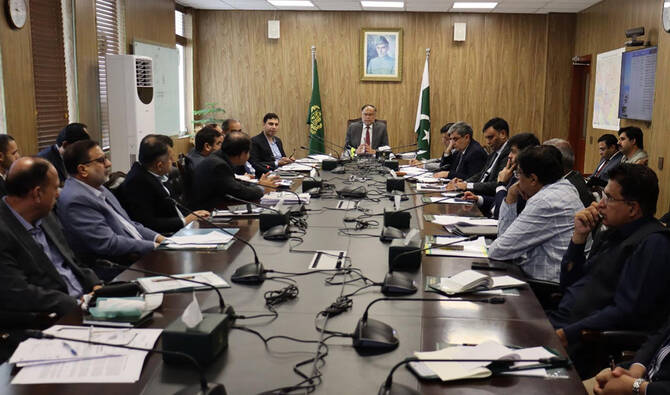ISLAMABAD: The Pakistani government is actively engaging private shipping liners to commence transshipment operations between Gwadar and the Gulf region, Pakistani state media reported on Friday.
The statement came from officials at a high-level meeting of the Cabinet Committee on Gwadar Port operationalization, which was presided over by Planning Minister Ahsan Iqbal.
Maritime officials informed the participants that initial cargo categories will include minerals, dates, seafood, and cement, targeting sectors such as mining, fisheries, and processing industries.
Iqbal said Gwadar’s geostrategic position as the shortest trade route to the Gulf and Central Asia highlighted the port’s potential as a regional transshipment hub, the Radio Pakistan broadcaster reported.
“Iqbal emphasized the need to showcase Gwadar Port in international road-shows as a strategic trade hub linking the Gulf and Central Asia,” the report read. “He directed stakeholders to promote the port’s cost-effective trade routes and available incentives for international businesses.”
Gwadar, situated along the Arabian Sea, lies at the heart of the China-Pakistan Economic Corridor (CPEC), under which Beijing has funneled tens of billions of dollars into massive transport, energy and infrastructure projects in Pakistan.
Pakistan, slowly recovering from a macroeconomic crisis under a $7 billion International Monetary Fund (IMF) deal, has been looking to capitalize on its geostrategic location to boost transit trade and foreign investment for a sustainable economic recovery.
The country plans to cut container dwell time at its seaports by up to 70 percent to improve trade competitiveness and ease congestion, while it last month reduced port charges for exporters by 50 percent at the country’s second biggest Port Qasim.













